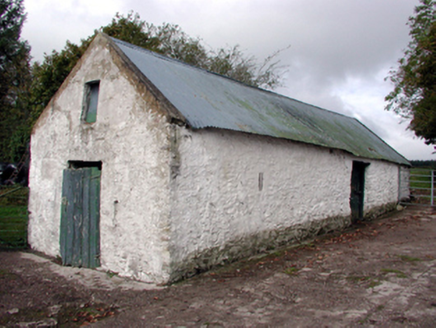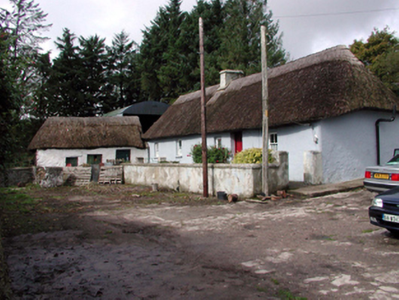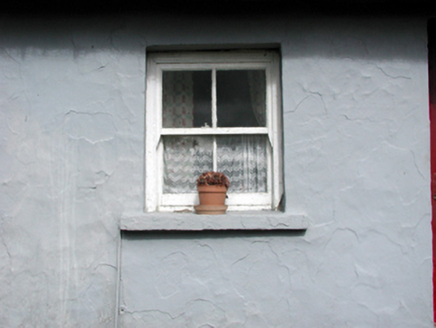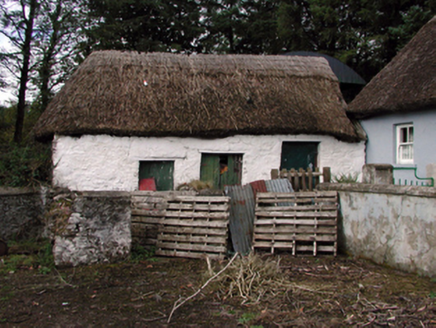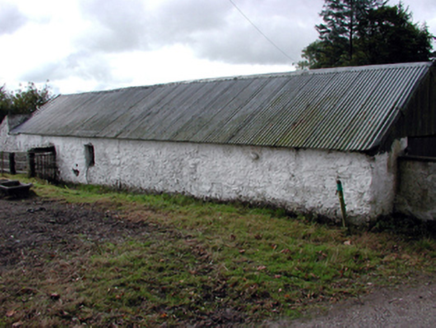Survey Data
Reg No
22903408
Rating
Regional
Categories of Special Interest
Architectural, Social
Original Use
Farm house
In Use As
Farm house
Date
1800 - 1840
Coordinates
204749, 87433
Date Recorded
30/09/2003
Date Updated
--/--/--
Description
Detached five-bay single-storey thatched farmhouse, c.1820. Refenestrated, c.1870. Hipped roof with reed thatch having rope work to ridge, and rendered chimney stack. Painted lime rendered walls over random rubble stone construction having slight batter. Square-headed window openings with stone sills. Replacement 1/1 and 2/2 timber sash windows, c.1870. Square-headed door opening with tongue-and-groove timber panelled door. Set back from road in own grounds with unpainted rendered wall along front (south) elevation, and courtyard to front (south). (ii) Detached three-bay single-storey rubble stone thatched outbuilding, c.1820, perpendicular to west. Hipped roof with reed thatch having rope work to ridge. Painted (limewashed) random rubble stone walls. Square-headed door openings with timber lintels, and timber boarded doors. (iii) Detached three-bay single-storey rubble stone outbuilding, c.1870, to south. Reroofed, c.1970. Pitched roof with replacement corrugated-iron, c.1970, iron ridge tiles, rendered coping, and no rainwater goods. Painted (limewashed) random rubble stone walls. Square-headed window openings with no sills, timber lintels, and timber fittings. (iv) Detached single-bay single-storey rubble stone gable-fronted outbuilding with attic, c.1870, to east with single-bay single-storey side (west) elevation. Reroofed, c.1970. Pitched (gable-fronted) roof with replacement corrugated-iron, c.1970, iron ridge tiles, rendered coping, and no rainwater goods. Painted (limewashed) random rubble stone walls. Square-headed window openings with no sills, and timber fitting. Square-headed door openings with timber lintels, and timber boarded doors.
Appraisal
A picturesque, modest-scale farmhouse that forms an important element of the vernacular tradition in County Waterford, as identified by the long, low massing, the construction in locally-sourced materials, and the thatched roof. Well maintained, the house retains most of its original form and early character, with important salient features and materials intact. The survival of a range of outbuildings to the grounds, individually of vernacular merit and one incorporating a thatched roof, enhance the group and setting values of the site.
